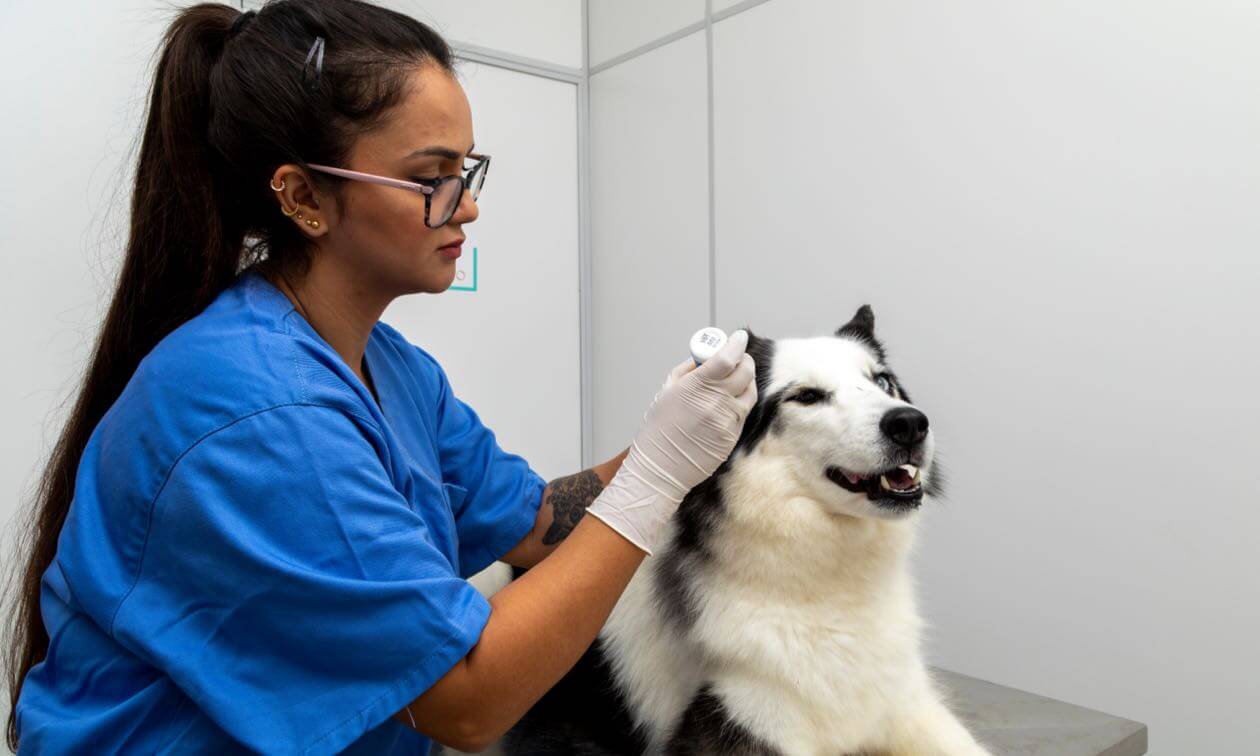Exactly How Vet McKinney Provides Specialized Take Care Of All Animal Kind
Exactly How Vet McKinney Provides Specialized Take Care Of All Animal Kind
Blog Article
Specialist Tips for Animal Nutrition From a Veterinarian
Understanding the dietary needs of family pets is essential for their overall wellness and longevity. Veterinarians advise a well balanced diet that provides to specific elements such as task, breed, and age degree. With the wide variety of animal food alternatives offered, pet proprietors typically find themselves browsing a landscape rife with false information and myths. As we discover important pointers from veterinary specialists, it becomes noticeable that proper nutrition is not merely regarding what is fed yet includes a much deeper understanding of each pet's special needs. What crucial understandings could transform your technique to pet dog nutrition?
Recognizing Nutritional Demands
Understanding the nutritional requirements of family pets is basic to guaranteeing their total health and wellness and wellness. Simply like humans, pets need a balanced diet plan that supplies essential nutrients, including proteins, fats, carbohydrates, minerals, and vitamins. These nutrients play crucial functions in different physical functions, such as energy production, immune response, and tissue repair.
They are made up of amino acids, some of which are necessary and need to be obtained from food. Carbs offer as a primary power source and can support digestive system wellness when they consist of fiber.
Minerals and vitamins are required for metabolic procedures and preserving total health and wellness. Each animal might have special needs based upon variables such as age, breed, task degree, and health standing. It is vital to speak with a vet to identify the details nutritional needs tailored to your pet dog's individual demands, guaranteeing they get optimal nourishment throughout their life stages. Correct understanding and focus to these dietary elements can significantly add to a pet's durability and lifestyle.

Picking the Right Food
It is essential to take into consideration factors such as age, dimension, breed, and wellness condition when choosing a family pet food. Elderly animals might profit from foods designed to deal with age-related concerns, such as joint health and wellness or weight monitoring.
When reviewing family pet food alternatives, try to find items that satisfy the Organization of American Feed Control Officials (AAFCO) standards, which make sure that the food gives complete and balanced nutrition. Ingredients need to be premium, with actual meat as the key source of protein. Prevent foods with extreme fillers, fabricated ingredients, or by-products, as these can detract from the general dietary worth.
Consulting with a vet can provide tailored recommendations based on your animal's certain demands. In addition, transitioning in between foods need to be done gradually to avoid intestinal distress. By taking these steps, animal owners can make sure that they are supplying their fuzzy buddies with the most effective feasible nourishment for a satisfied and healthy and balanced life.
Usual Misconceptions Regarding Family Pet Food
Unmasking misconceptions surrounding pet food is important for making sure ideal nutrition for our furry friends. One widespread misconception is that all grain-free diet plans are exceptional for pets. In truth, grains can provide essential nutrients and are not naturally unsafe. A well balanced diet plan can include grains, given they are not creating any type of intolerances or allergic reactions.

Furthermore, lots of pet dog proprietors think that "costs" or "all-natural" tags ensure better. These terms are usually uncontrolled and do not always show premium dietary worth. It is crucial to find out here now inspect component lists and nutritional accounts rather.
Special Factors To Consider for Various Breeds
When it concerns pet nourishment, unique considerations must be considered for different breeds, as each breed can have distinct nutritional requirements and sensitivities. Huge breeds such as Great Danes and Saint Bernards Recommended Site are susceptible to musculoskeletal problems and might profit from diet regimens formulated to support joint health, usually including active ingredients like glucosamine and omega fatty acids. On the other hand, tiny breeds like Chihuahuas might need greater calorie densities to fulfill their power degrees, demanding formulas that are rich in nutrients but lower wholesale.
In addition, specific types might be predisposed to particular health worries, such as food allergies or level of sensitivities. Breeds like Labrador Retrievers might battle with weight problems, calling for careful portion control and a well balanced diet regimen to maintain a healthy weight. On the other hand, breeds such as Dachshunds might be more vulnerable to spine concerns, prompting a need for diet plans that advertise back health and weight management.
Eventually, recognizing these breed-specific dietary needs is important for pet dog proprietors. Consulting with a vet can help in selecting the most suitable diet plan customized to a private animal's breed, age, Animal Chiropractor Greensburg and health and wellness condition, making sure ideal nutrition and wellness.
Significance of Routine Veterinary Check-Ups
Understanding the distinct dietary needs of various types is just one element of accountable family pet ownership; routine veterinary check-ups play a vital duty in keeping general health and wellness. These exams are crucial for early detection of health concerns, making certain that any kind of prospective problems are addressed prior to they end up being major. Regular visits permit vets to monitor your pet's weight, oral health and wellness, and important indicators, which are critical signs of overall health.
Additionally, routine exams allow veterinarians to provide customized dietary guidance based upon your family pet's individual wellness status - Animal Chiropractor Greensburg. As family pets age, their dietary needs might transform, and changes might be necessary to stop excessive weight or nutrient deficiencies. Preventative treatment, consisting of inoculations and parasite control, is additionally a basic element of these check outs, securing your pet dog from various diseases
In addition to physical exams, these appointments offer a superb possibility for family pet proprietors to review behavior modifications or issues regarding their pet dog's consuming practices. By focusing on normal veterinary examinations, pet dog owners can make sure a much longer, much healthier life for their furry buddies, eventually boosting their lifestyle.
Final Thought
Finally, ensuring ideal family pet nourishment calls for a comprehensive understanding of private dietary requirements, ideal food option, and awareness of common misconceptions. Unique factors to consider for numerous types must be accounted for, and regular veterinary check-ups play an important function in monitoring wellness and dietary adjustments. Following AAFCO standards and talking to veterinarians prior to making nutritional adjustments will certainly boost the health of pet dogs, inevitably adding to their longevity and lifestyle.
With the wide range of animal food options available, pet proprietors often locate themselves browsing a landscape raging with false information and myths. Each pet may have distinct demands based on elements such as age, breed, task degree, and health and wellness status. It is important to consider variables such as age, size, type, and health and wellness condition when choosing a family pet food. Senior animals may profit from foods developed to address age-related concerns, such as joint health and wellness or weight management.
Recognizing the unique nutritional needs of various breeds is just one element of liable family pet ownership; normal veterinary exams play a crucial function in maintaining general health.
Report this page